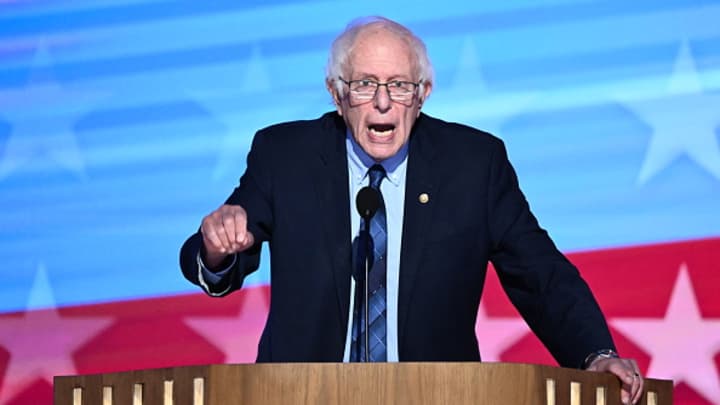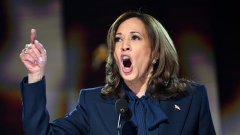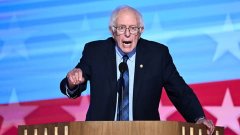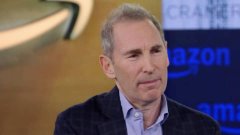
Sen. , I-Vt., spent his primetime appearance at Tuesday night's laying out his own policy priorities — even ones that he knows diverge from ' campaign platform.
"We need to join the rest of the industrialized world and guarantee health care to all people as a human right, not a privilege," Sanders said, doubling down on his longstanding support for a program.
The Independent senator running for reelection in Vermont was well aware that Harris does not share his position on universal healthcare.
"We need Medicare for All," he said in a Monday interview with . "That's not her view, nor is it President Biden's point of view. And you know what, I think I'm right and they're wrong."
During his DNC speech, Sanders also railed against the influence of big money in politics, in spite of all the billionaire megadonors helping to fund Harris' campaign.
"Billionaires in both parties should not be able to buy elections—including primary elections," Sanders said.
Harris has a well-documented Rolodex of billionaire megadonors helping fund her campaign, along with millions more in small-dollar donations.
"We must take on big pharma big oil, big ag, big tech and all the other corporate monopolists whose greed is denying progress for working people," Sanders said.
By making universal healthcare, money in politics and class warfare all key planks of his DNC speech — and by never extolling Harris' virtues, Sanders knowingly bucked an unspoken rule of presidential conventions: Speakers are expected to sing the praises of the party's nominee.
And while he offered a quick note of support for Harris' election fight against former President , Sanders' positions effectively drew a contrast with the vice president.
Sanders' speech on Tuesday was not the first time he expressed noticeably tepid support for Harris.
"She's a great campaigner," Sanders said of Harris in the Monday Politico interview. "We're not best friends, but I've known her for many years."
Sanders said Monday that while he supports Harris, he stands by his belief that President Joe Biden could have carried out a second term, a view that is not shared by most of his party's leaders.
Sanders remained fervently loyal to Biden even after his disastrous debate that led Democratic party members to voice concerns about his reelection bid.
But Sanders' decision to highlight some of the distance between himself and Harris, though unconventional, could ultimately be an asset to the vice president, as she works to appeal to moderate, undecided voters.
An August poll from the found that 45% of likely voters felt Harris was too liberal or too progressive in the battleground states Arizona, Georgia, Nevada and North Carolina.
That sentiment is in part a result of Trump's effort to paint Harris as a radical progressive, an attempt to scare off Democrat-curious undecided voters who may lean more moderate.
"Comrade Kamala Harris is terrible for our Country. She is a Communist, has always been a Communist, and will always be a Communist," Trump wrote on Sunday.
But Sanders' half-hearted enthusiasm for Harris offers a direct rebuttal to those Republican attacks.
A and one of the farthest left lawmakers on Capitol Hill, Sanders is a reminder for center-leaning voters that there are plenty of Democrats who are far more radical than the vice president.
That message might already have begun to take hold with the electorate.
Austin Davis, a 29-year old self-declared communist from Chicago, told NBC News on Tuesday that he does not consider Harris a communist.
"Kamala is not a communist," he said. "Any person who can understand even the basic definition knows that she's not a communist."




